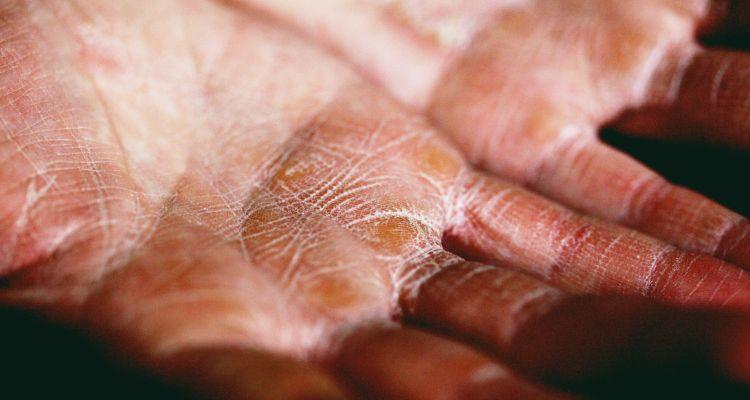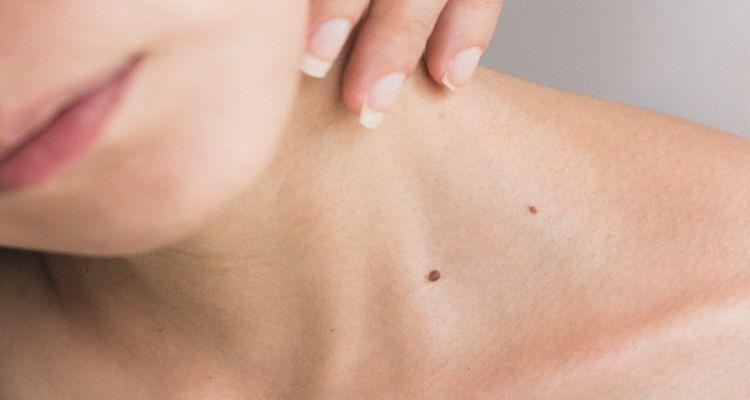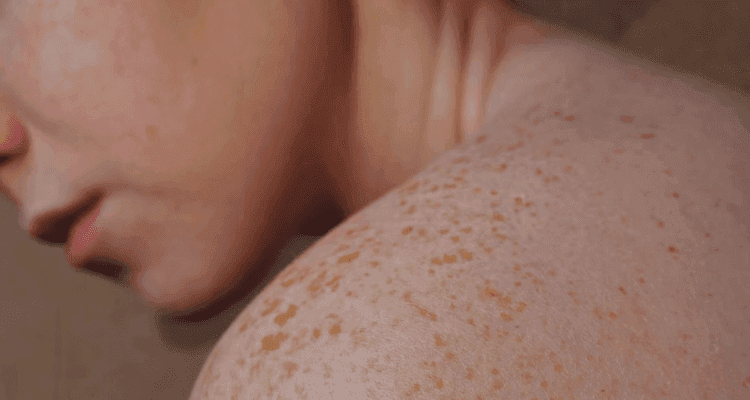
Genital herpes - woman, man & symptoms
Updated on 02. November 2023
Painful burning and blisters in the intimate area are an indication of an outbreak of herpes. This is a virus that is carried by about 67% of people under the age of 50 worldwide. Often, the virus goes undetected because the disease does not break out. However, various factors can lead to an acute illness.
Genital herpes Brief overview:
- Causes: Infection with the herpes simplex virus through sexual intercourse
- Symptoms: Sores in the genital area; itching, burning, pain when urinating
- Prevention: Use of condoms or other barrier methods during sexual intercourse
- Treatment: No cure, but treatment to alleviate symptoms through medication
What are the symptoms of genital herpes?
The symptoms of genital herpes often do not show after infection. In many cases, the virus remains unnoticed in the body. An outbreak of the infection can occur days to several years after infection and cause painful symptoms:
- Burning and itching in the genital area
- Fluid-filled blisters that later burst open and form crusts.
- Fever and feeling ill
- Swollen lymph nodes
If the disease breaks out for the first time, the symptoms are particularly painful. Further outbreaks are milder and go away more quickly. Symptoms such as swollen lymph nodes and fever usually no longer occur.
Are there particular symptoms of genital herpes in women?
Genital herpes mainly affects the labia in women. The affected area is reddened and the weeping blisters form. The infection can also spread to the vagina, vulva and cervix. This can cause tingling down to the hips and legs.
What are the symptoms of genital herpes in men?
Genital herpes predominantly affects the sexual organs in men as well. Redness and blisters occur on the penis, scrotum and foreskin. The anus can also be affected. Pain and tingling can radiate into the thighs.
What is the cause of genital herpes?
Genital herpes is caused by infection with herpes simplex viruses. HS viruses of type 1 are usually responsible for cold sores. Genital herpes, on the other hand, is caused by HS viruses type 2. However, it can also happen that genital herpes is triggered by virus type 1.
How does transmission occur in genital herpes?
Herpes viruses are transmitted through skin contact, especially via the mucous membranes. The most common route of infection is therefore unprotected sexual intercourse. The fluid in the blisters is particularly infectious. Therefore, the risk of infection is particularly high in the acute stage. Infection can also occur via shared sexual toys.
Can genital herpes also be transmitted through other sexual intercourse?
The viruses can also infect the oral mucosa and then cause cold sores. Transmission through the hands from the mouth to the intimate area is also possible. Therefore, infection can also occur during oral sex. This also applies to anal intercourse.
Is genital herpes contagious even without symptoms?
The greatest risk of infection comes from the fluid in the blisters. Once the crust has formed on the blisters, the risk of infection is reduced. After the symptoms have completely healed, there is still a residual risk that healthy partners will become infected during sex. Affected persons are often unaware of their infection because the disease has not yet broken out. Transmission can therefore also occur unknowingly.
Can I get genital herpes without sexual contact?
New studies have shown that the virus can survive up to 48 hours in the air with sufficient humidity. Towels in particular, but also underwear or bed sheets, offer good chances of survival for the herpes simplex virus.
What causes the disease to break out?
Many people do not notice the infection with herpes viruses because the disease does not break out. Common causes for an outbreak of the disease are:
- hormonal changes
- Psychological stress
- Fever and infections
- a weakened immune system
What are the problems with genital herpes in pregnancy?
Three different situations can be distinguished in the case of genital herpes during pregnancy.
- Infection dates back a long time and first outbreak of the disease before pregnancy: If an infection already exists and the disease has broken out several times, antibodies have formed in the mother's body. These also pass on to the unborn embryo. This also protects the baby and local antivirals are sufficient to treat the disease. Only about 5% of babies become infected in the womb.
- Disease outbreak shortly before birth: An acute disease condition involving the birth canal can be problematic. Despite antibodies, the newborn can easily become infected. In this case, the viruses enter the blood of the newborn through the eyes, the mouth and the skin. The result can be a dangerous infection in the brain. In this case, the expectant mother is given an infusion treatment with a virus-inhibiting agent. Alternatively, in the case of an acute outbreak, a caesarean section is preferred.
- Infection shortly before or during pregnancy: In this case, not enough antibodies have formed yet. The probability of infection for the baby at birth is very high. Therefore, virus-inhibiting drugs are also used in this case or a caesarean section is considered.
What is the treatment for genital herpes?
Genital herpes is not curable. After infection, the virus remains in the body. Treatment for genital herpes is limited to containing the virus and treating the symptoms.
How is genital herpes treated?
Genital herpes is treated with antivirals. These antivirals prevent the viruses from multiplying. This curbs the infection and the symptoms subside. The exact treatment depends on the severity of the outbreak.
What medicines help with genital herpes?
Since the first outbreak of genital herpes is particularly severe, treatment should be started as soon as possible. In the case of pronounced painful symptoms, tablets are recommended by the doctor. The following antistatic drugs are used for genital herpes:
- Aciclovir
- Penciclovir
- Famciclovir
- Valaciclovir
The antivirals listed are available on prescription as tablets.
Are there over-the-counter antiviral medicines for genital herpes?
For only a few small blisters, locally applied ointments are often sufficient. These preferably contain the active ingredient aciclovir. If these ointments are used at the first signs, they are very effective. For reasons of hygiene, the ointment should not be applied with the fingers. Cotton swabs or cosmetic spatulas are best. In this case, the use of disposable products is recommended. Alternatively, reusable spatulas should only be touched at one end and then thoroughly disinfected.
Which doctor is the right contact for genital herpes?
In general, family doctors or urologists can be the first point of contact. As specialists, women choose the gynaecologist and men the andrologist.
What home remedies help with genital herpes?
Various home remedies can alleviate the symptoms and improve the general condition.
- Lemon and lemon balm: The active substances they contain prevent the viruses from entering the body's cells. The lower the number of infected cells, the better the general condition of the affected person. Citric acid is preferably used diluted as a sitz bath or as a poultice.
- Zinc: Zinc oxide acts against germs in inflammations and thus promotes wound healing. The active ingredient binds moisture. This means that the tissue is not additionally softened and pathogens are less able to overcome the skin barrier. Zinc oxide is applied as an ointment to the affected areas. Cotton swabs or spatulas are suitable for this purpose. The spatula must be thoroughly cleaned after the treatment.
- [Witch]() hazel: The [witch]() hazel contains tannins in many parts of the plant. These have an astringent effect and thus pull the skin together. The resulting firmer mucous membrane provides a stronger barrier against pathogens. At the same time, tannins have an anti-inflammatory effect and relieve itching and burning. Witch hazel can be applied as an ointment directly with cotton swabs. In addition, sitz baths or compresses alleviate the symptoms and support the healing process.
Home remedies such as toothpaste and honey are often recommended against genital herpes. These substances close the surface or prevent healing through additives.
Can genital herpes also heal on its own?
Genital herpes can also subside on its own. However, the first outbreak can cause severe discomfort and complications such as [vaginal fungus](), bladder weakness and, very rarely, brain inflammation. Therefore, a visit to a doctor and drug therapy should be considered.
How long does it take to cure genital herpes?
The duration of the symptoms depends on many factors. On the first outbreak, a period of 20 days can be expected without medication. On further occasions, a milder course is usually observed, which heals within 10 days. Antivirals usually reduce the acute phases by 2 to 4 days.
What happens after the treatment of gential herpes?
After successfully combating the symptoms of the disease, the herpes virus withdraws into the so-called ganglia, an area of the nervous system. The viruses are no longer active. At the same time, however, they cannot be fought by the body's own defence substances. In the best case, they remain inactive there for the rest of their lives. However, the virus cannot be completely eliminated.
Can genital herpes recur?
Since the viruses remain in the body for life, the disease can reappear at any time. Stress and a weak immune system in particular can cause the inactive viruses to become active again. If acute phases occur recurrently in shorter periods, a doctor should be consulted in any case. He or she will check the cause of the frequent outbreaks of the disease. At the same time, the doctor can examine the possibilities of a long-term therapy to reduce the likelihood of renewed outbreaks.
How can I prevent genital herpes?
The prevention of genital herpes is about avoiding infection. However, since recurrent outbreaks of the disease are very unpleasant and annoying, preventive measures should also be taken against it.
How can infection with genital herpes be avoided?
Genital herpes is a sexually transmitted disease. For this reason, contraception should always be used with a condom, a female condom, or lick cloths. This does not only apply during an acute phase. The viruses can also be transmitted in an inactive state. If there is an acute outbreak, the fluid in the vesicles is highly infectious. As soon as the first symptoms appear, sexual intercourse must be completely avoided.
How to prevent a new outbreak
Despite the milder course of further acute outbreaks, a repeated occurrence is very unpleasant and stressful. To avoid this, the risk factors must be avoided. Not all risk factors such as hormonal fluctuations due to the menstrual cycle can be avoided. But a healthy lifestyle with less stress can reduce the acute phases.
- Stress as one of the main causes can be reduced by relaxation therapies like yoga or autogenic training.
- Before treatments where the affected nerve nodes can be irritated, a discussion should take place with the dentist, for example.
- The immune system can be strengthened by a vitamin-rich diet, regular exercise and sufficient sleep.
How can I still avoid infection?
On damp fabric such as towels, the viruses can survive for up to two days. This also applies to laundry up to 40°C. Therefore, textiles from affected persons should be washed at at least 60°C or with a hygiene rinse. The viruses are then reliably killed by a subsequent drying cycle. This is especially necessary in a multi-person household with one infected person.

Hameli's vision
Go to Vision
Vaginal Fungus - Symptoms, Causes & Treatment
Go to Vaginal mycosis
Dry skin - What helps against it?
Go to Dry skin
Witch hazel - varieties, cutting, effect, & products
Go to Witch Hazel
Recognise and treat coccygeal fistula
Go to Coccygeal fistula
Anal fistula - symptoms, causes & treatment
Go to Anal fistula
Labial tear - Symptoms, Causes & Treatment
Go to Labial tear
Intertrigo - Cause, symptoms and treatment of the skin wolf
Go to Intertrigo
Anal abscess: symptoms, recognition, causes & treatment
Go to Anal abscess
Chickenpox - symptoms, vaccination, infection and treatment | Hamelis
Go to Chickenpox
Seborrhoeic Eczema - Symptoms, Causes & Treatment
Go to Seborrhoeic eczema
Anal fissure - Symptoms. Causes & home remedies
Go to Anal fissure
Vaginal dryness - symptoms, causes & treatment
Go to Vaginal dryness
Hives - Cause, symptoms and treatment
Go to Hives
Hamelis experts
Go to Experts
Rose lichen - symptoms, causes and treatment
Go to Rose lichen
Scars - treatment and removal
Go to Scar
Ringworm: Symptoms, Causes & Treatment
Go to Ringworm
Scabies - symptoms, cause and treatment
Go to Scabies
Treat anal eczema sustainably
Go to Anal eczema
Eczema - symptoms, causes and treatment
Go to Eczema
Contact allergy - symptoms and treatment
Go to Contact allergy
Treat stubborn nail fungus
Go to Nail fungus
Crabs - Intimate area, symptoms & treatment
Go to Crabs
Pruritus - Causes, symptoms and treatment
Go to Pruritus
Rosacea on the face - symptoms, causes and treatment
Go to Rosacea
Perioral dermatitis - symptoms, treatment & home remedies
Go to Perioral dermatitis
Skin fungus - cause, symptoms and treatment
Go to Skin fungus
Perineal tear - origin, degrees & causes
Go to Perineal laceration
Anal prolapse: symptoms, causes, treatment
Go to Anal prolapse
Skin rash - causes and treatment
Go to Skin rash
Atopic dermatitis in children, adults and pets
Go to Atopic dermatitis
Angioedema - symptoms, causes and therapy
Go to Angioedema
Nappy dermatitis - cause and treatment of sore baby bottom
Go to Diaper rash
Sunburn - symptoms, duration & what helps?
Go to Sunburn
